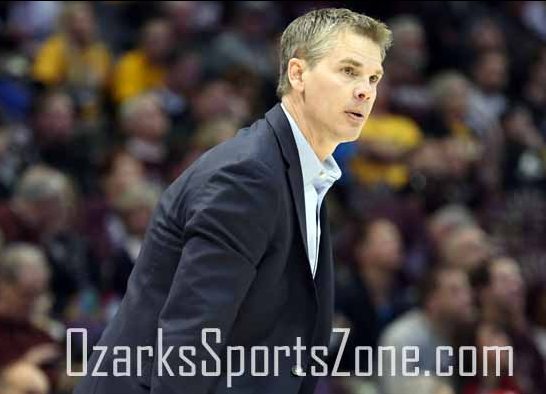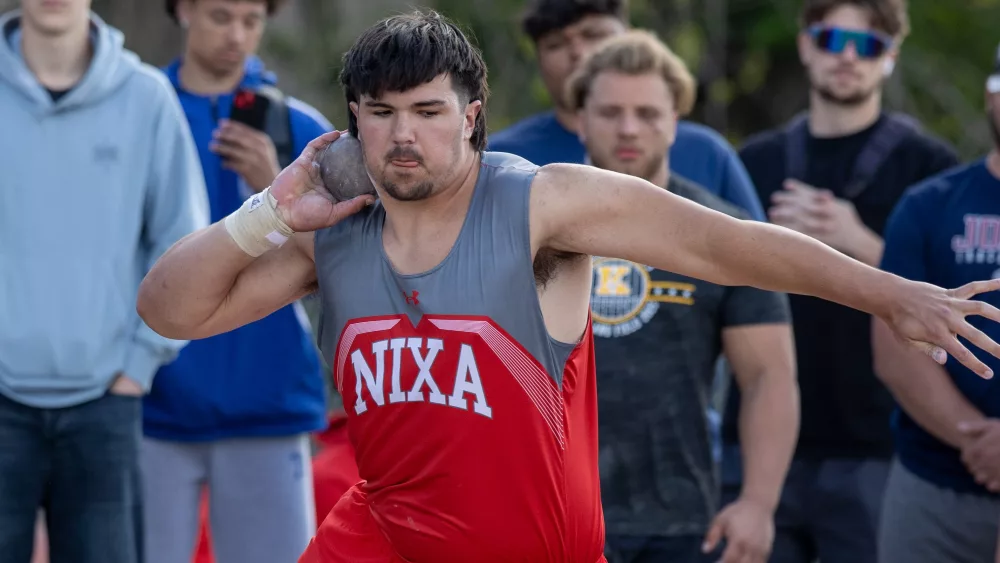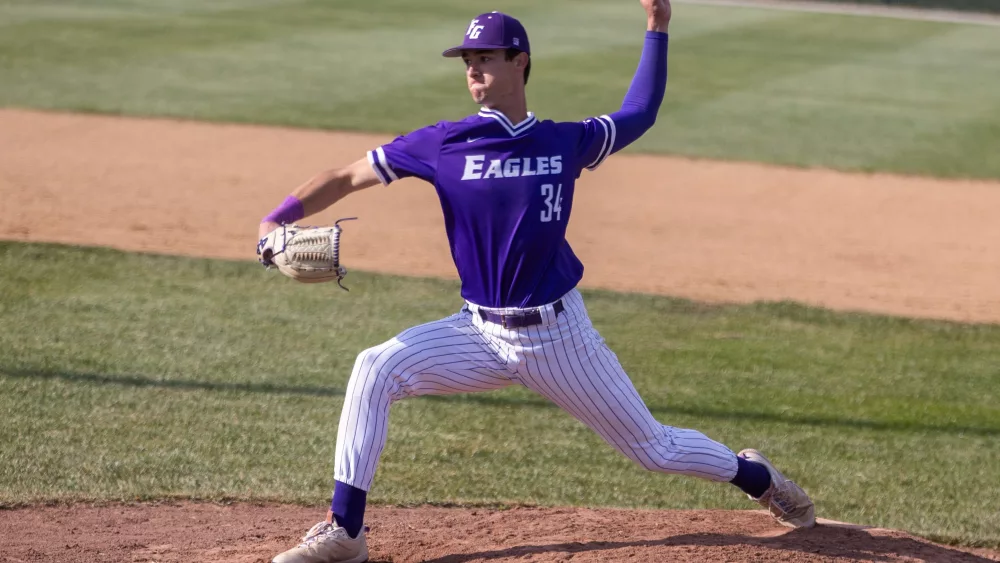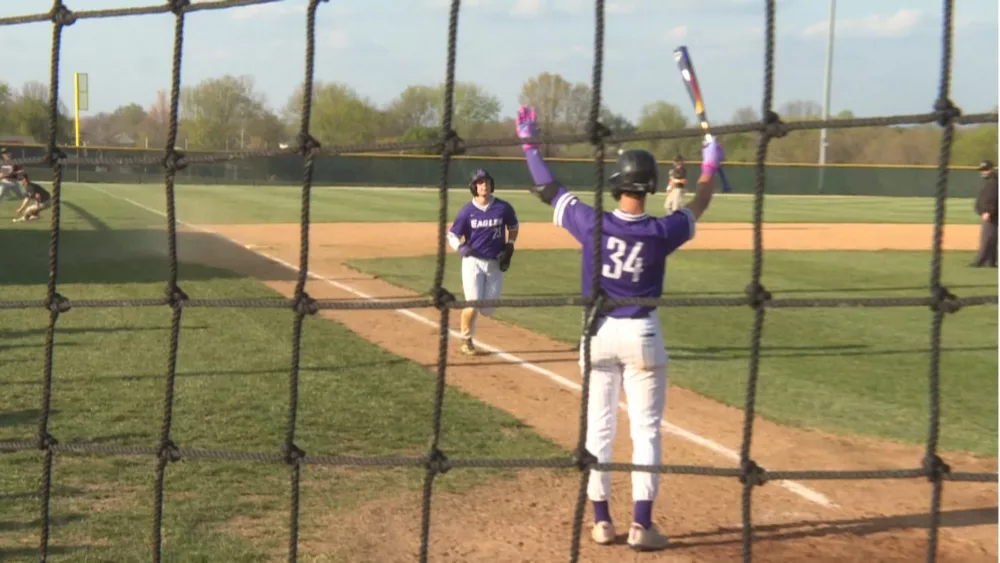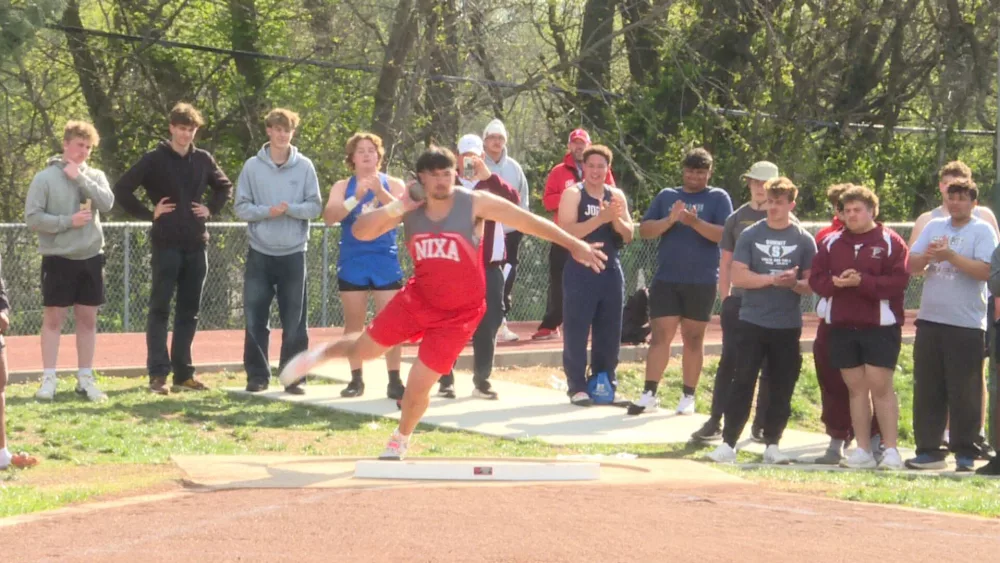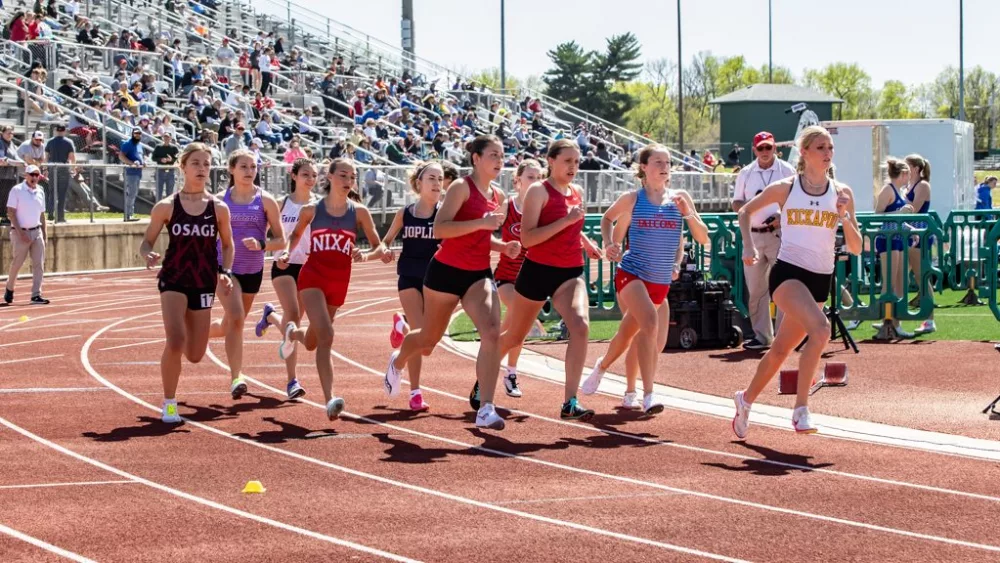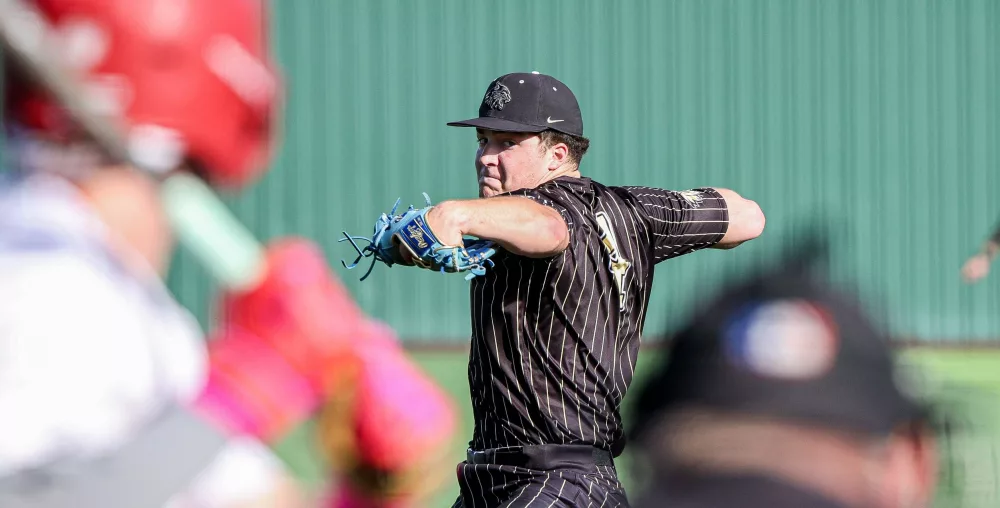SPRINGFIELD — Last month, Missouri State announced that it plans to cut $750,000 from its athletics budget.
With that hefty price tag in place, difficult decisions must be made. It would make the concept of the $742,906 buyout for the remainder of Lusk’s contract seem unreachable.
So, on Saturday night, athletic director Kyle Moats and President Clif Smart reiterated their faith in the current regime and expectation to contend for a Missouri Valley Conference Championship next season after a unanimous vote by the Board of Governors to make no changes.
In seven seasons under Lusk, the Bears are 88-106. Of the 52 coaches who have coached at least 150 games in the Valley, Lusk is 46th in winning percentage.
From a reporting standpoint, he has always been cordial in interviews and gracious with the media. That doesn’t disguise that a few trends have spawned over his tenure in Springfield, which are listed below, season-by-season:
2011-2012
Seven new players joined the team along with reigning Valley Player of the Year Kyle Weems.
The Bears proved themselves streaky at first: winning four straight, dropping three straight, winning another three straight.
Perhaps the biggest win in Lusk’s time in Springfield came early, a 77-65 road victory over No. 21 Creighton in late December. They would later drop a one-point decision to those conference foes at home.
With two nationally-ranked teams leading the MVC standings, MSU could not replicate the success of the previous year, turning in a 16-16 record and a quarterfinal loss to Evansville at Arch Madness.
Weems produced another First Team All-MVC campaign after averaging 15.6 points and 7.2 rebounds.
2012-2013
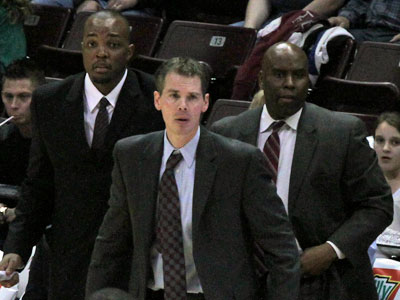
The Bears trudged out of the gate with a 2-10 non-conference mark. Once Valley play began, the wins did not trickle in much faster as they finished one game above Southern Illinois for last in the league.
Anthony Downing led the team with 13.7 points and 2.7 assists per nights and was second in rebounds.
MSU managed to knock off bottom seed SIU in the play-in round of the MVC Tournament, but dropped their quarterfinals matchup to Wichita State to finish 11-22.
2013-2014
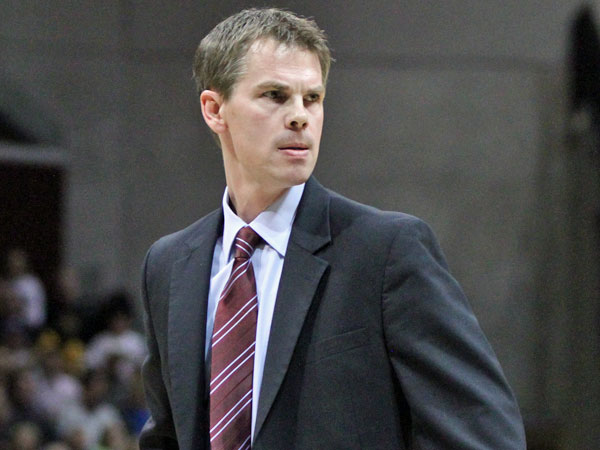
In the Year of the Shockers, MSU put up its best season under Lusk. Led by Jarmar Gulley and Marcus Marshall, the Bears posted a 20-11 mark, including a win over Power 5 opponent Texas A&M.
Nixa product Austin Ruder set an MVC record for three-pointers for a freshman.
MSU made its first MVC Tournament semifinal under Lusk, falling to undefeated Wichita State. They would return to Springfield 11 days later to host a first-round matchup with Murray State in the CollegeInsider.com Tournament, a 66-63 loss.
In May, freshman guard Devon Thomas announced his decision to transfer and would ultimately end up a starter at Texas Tech.
2014-2015
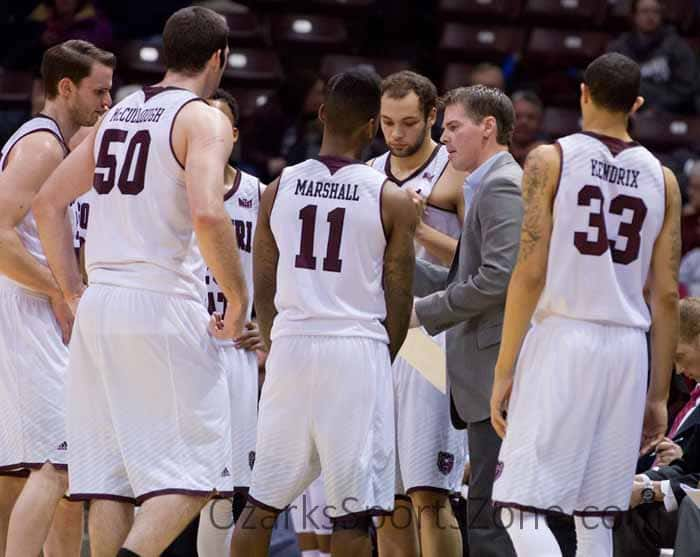
After being picked to finish third in the MVC, the Bears were hit with an early injury to Ron Mvouika, limiting him to just two games where he totaled 11 points.
Without the services of what Lusk called the team’s spiritual leader, they would rely heavily on one of the nation’s most prolific scorers: Marcus Marshall. However, 17 games into the season, the most high-profile blow of the Lusk tenure came when the leading scorer Marshall was suspended and announced he would transfer two days later.
At the time, his 19.5 points per night were second in the MVC. The Bears limped to an 11-20 record and a play-in round defeat to Southern Illinois at Arch Madness as no other player cracked double digits in scoring average.
2015-2016
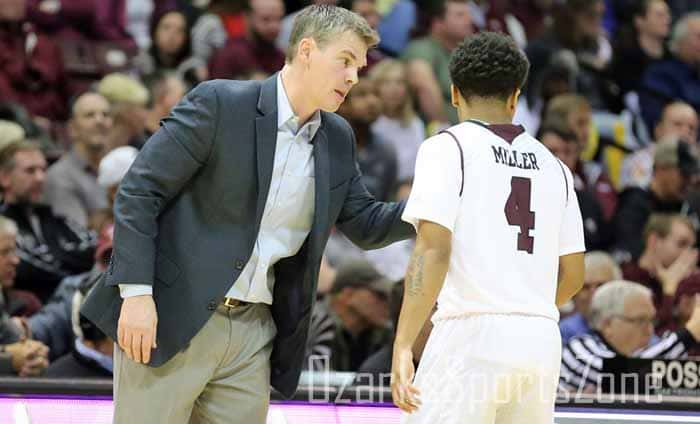
An influx of new faces and battle-tested sophomores had MSU feeling refreshed entering a new year.
Then sophomore Chris Kendrix, arguably the most athletically gifted player on the team, came under the microscope when he was kept on the bench midway through the season because he was, as Lusk would only categorize as, “going through some things”.
The Willard native was expected to take a leap after playing over 23 minutes per night as a freshman. Kendrix did finish as one of three Bears two average at least 12 points per night along with senior Camyn Boone and MVC Newcomer of the Year Dequon Miller.
Dequon Miller quickly grew into one of the most successful junior college transfers under Lusk, leading the team in scoring while becoming the go-to hand in the final minute as he delivered last-second shots against Oklahoma State, Northern Iowa, and Loyola.
The Bears defeated Drake in the play-in round at the MVC Tournament before falling to the No. 2 seed, Evansville, to finish with a 13-19 mark.
Just over a month after the season ended, Shawn Roundtree became the latest Bear to request a transfer from the program.
2016-2017
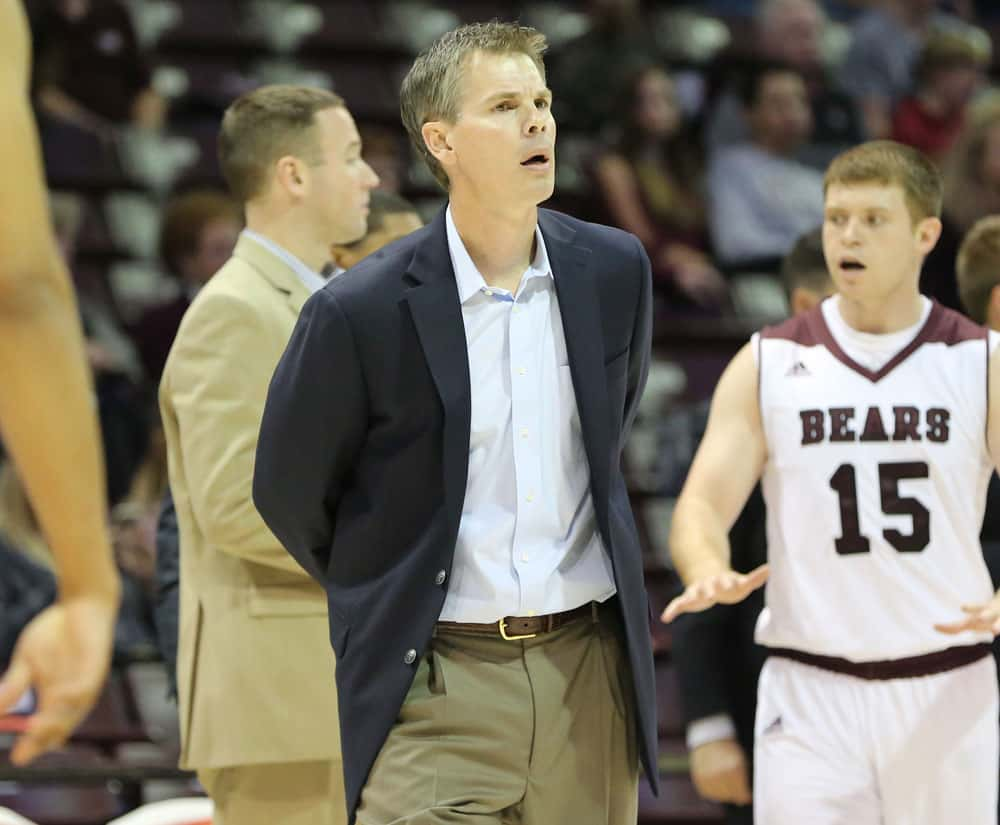
The injury bug left its mark again as highly-touted signee Greg Williams earned a medical redshirt before the season began.
Still, a major facelift came with the addition of three JUCO transfers: Alize Johnson, Ronnie Rousseau III, and Jarrid Rhodes.
All three left an immediate mark.
Johnson began his nightly double double crusade while Rousseau’s athleticism took pressure of Miller to bring the ball up the court. Rhodes became a reliable bench hand before working his way into the starting lineup with efforts like his 35 combined points in two meetings against Illinois State.
Then, once again, a ripple was sent through the program on Jan. 7 as Rousseau, the team’s second-leading scorer, would take a leave due to personal reasons. Less than a month later, Lusk confirmed that Rousseau would not return, ending his MSU career after 14 games.
Johnson would become the first Bear to land on the All-MVC First Team since Weems in 2012 as he lead the league in rebounding. Still, MSU would consistently falter in second halves and lose eight of its last ten.
The Bears knocked off Northern Iowa to reach the MVC Tournament semifinals for a second time in six seasons, ultimately losing to Wichita State again.
===
Every bad turn the program has taken cannot be put on Lusk. Plenty of times, he has done what he could with the hand he has been dealt.
Still, as has been the trend around numerous programs in the country, talented guards have habitually been leaving the program.
His final squad showed consistent problems with closing out games, dropping six contests by a single possession. On more than one occasion, he publicly accosted the effort of his players. Following a January win over SEMO at home, Lusk apologized to fans.
“I usually take some bullets for these guys, but that was unacceptable,” he said. “We get up by 20 points and we think we can go back to just showing up. We’re not good enough, nor have we won enough. I though we were long past that.”
After a loss at Bradley two weeks ago, Lusk was again unable to explain the effort.
“I can’t defend the way we performed,” he said on his postgame radio show. “Can’t defend it, I’ll leave it at that.”
Again, not everything can be laid at his feet, but ample talent has gone unfulfilled, gone undeveloped, or gone away that has set the progress of the program back.
Since Cuonzo Martin’s last year in 2011, average attendance at JQH Arena has gone from 7,595 per night to 4,140. Less than 4,000 fans showed up nine different occasions this season.
From an outside perspective, it is jarring to see footage of the Bears’ last victory over Wichita State that clinched the regular season conference championship. Seeing JQH Arena filled the brim shows what a basketball atmosphere Springfield could produce, yet is a phenomenon sadly reduced to the final night of the Bass Pro Tournament of Champions.
Pricing and the availability of games on television and streaming services have played their role in attendance, but the program has done little to draw interest or instill excitement in recent seasons.
The department already offered full refunds on season tickets prior to the start of conference play this season. Beyond a lower price and the fact that the returning core should draw a high preseason poll selection, there is little to sell about the program next year.
An entire class of students have enrolled and graduated from Missouri State without much incentive to connect with Bears Basketball.
Moats stated firmly that Rousseau’s departure was a huge factor in the final result of this season, something that could be said about more than one campaign.
To the fans who are frustrated, Clif Smart offered this:
“I encourage them to hang with us, but if they want to drop out for a year and come back when we’re winning and heading to the NCAA Tournament, we’ll be happy to welcome them back.”
Again, difficult decisions are made by athletic departments every day, especially ones that are in the same boat as Missouri State.
This one will mortgage at least another year of Bears Basketball when fans believe they can ill-afford to do so.

